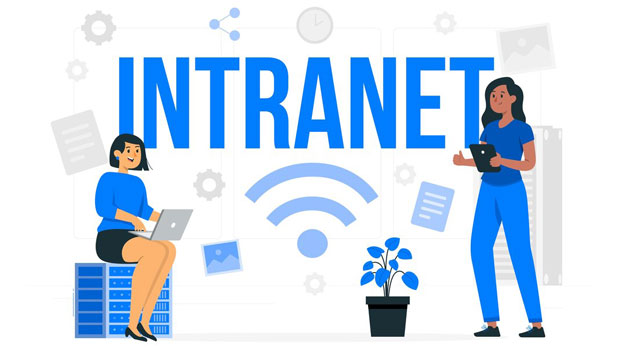For newcomers who are looking to purchase Japan proxies, one of the most common questions is whether to choose a proxy service like PYPROXY or DuckDuckGo Proxy. Both options offer unique features and benefits that can appeal to different user needs. However, understanding their key differences, advantages, and limitations can significantly help a beginner make a well-informed decision. This article provides a detailed analysis of both options, focusing on aspects like ease of use, privacy, security, pricing, and speed. By the end of this article, you will have a clearer understanding of which service might be better suited to your specific requirements for buying Japan proxies. Understanding the Basics of Japan ProxiesBefore diving into the comparison of Pyproxy and DuckDuckGo Proxy, it’s essential to first understand what Japan proxies are and why someone might need them. A proxy server essentially acts as an intermediary between your device and the internet. By using a proxy, users can hide their real IP addresses and make it appear as if they are browsing from a different location. In this case, Japan proxies make it look like the user is accessing the internet from Japan.This can be crucial for accessing Japan-specific content, bypassing geo-restrictions, or enhancing privacy and security. With a Japan proxy, businesses or individuals can make market research, conduct automated tasks, or simply surf the web with a Japan-based identity. The need for a reliable proxy service in Japan is growing due to increasing demand for accessing Japanese content and services.Factors to Consider for BeginnersFor beginners, the decision between proxy providers involves understanding key factors that will impact their experience and satisfaction. When considering a proxy service for buying Japan proxies, here are some important aspects to look at:1. Ease of UseEase of use is often the first consideration for new users, especially those who may not be highly technical. A user-friendly interface, simple setup process, and clear instructions are vital for a positive experience. Some proxy services provide intuitive dashboards and easy-to-follow steps for configuring proxies, while others may require more advanced knowledge or even technical troubleshooting.New users typically benefit from services that offer easy installation guides, automatic configurations, or even customer support to walk them through the setup process. Those unfamiliar with technical details such as IP types, subnets, and DNS settings might find services that abstract these details more appealing.2. Privacy and SecurityPrivacy and security are critical considerations when selecting a proxy service. When browsing the internet via a proxy, your data is routed through an intermediary server, which makes it essential for the service to ensure your information remains secure.A reliable proxy service should offer strong encryption protocols and a no-logs policy to prevent tracking of your activity. For beginners, it’s essential to choose a service that prioritizes data protection and minimizes the risk of exposing sensitive information.Security features like HTTPS support, IP masking, and DNS leak protection can also be valuable for safeguarding your browsing activities. Additionally, consider the location of the proxy server and its compliance with local data protection laws, especially when using proxies for accessing region-specific content like in Japan.3. Speed and PerformanceAnother essential factor is speed and performance. Proxies can sometimes cause slowdowns in internet speed due to the extra step of routing data through an intermediary server. Therefore, for users intending to use Japan proxies for tasks like streaming, gaming, or automated browsing, selecting a service with fast and reliable servers is crucial.New users might not have a clear understanding of how proxies affect internet speed, so it’s helpful to choose a service that provides consistent speed tests, load balancing, and high uptime. Additionally, selecting proxies that have low latency to Japan-based websites can enhance the user experience, especially for those accessing Japanese services that require real-time performance.4. Customer Support and AssistanceWhen selecting a proxy provider, reliable customer support is invaluable, particularly for beginners. Issues can arise with proxies, from technical problems to configuration errors, and having access to responsive support channels can help resolve these problems quickly.Good customer support includes accessible live chat, email support, and detailed knowledge bases or FAQ sections. Some proxy services even offer dedicated account managers or 24/7 technical assistance, which can be highly beneficial for those new to using proxies.5. Pricing and PlansFor most beginners, pricing is an important factor when deciding which proxy service to choose. Different proxy providers offer a variety of pricing structures, from pay-per-use models to subscription-based plans.A pay-per-use model can be appealing for beginners who only need proxies occasionally and don't want to commit to long-term contracts. On the other hand, subscription-based plans may offer discounts for long-term users, and some services include additional features like unlimited bandwidth or multiple proxy rotations.It’s important to compare the value offered by the service in terms of price versus the features provided. Beginners should consider what fits their budget while also making sure the service delivers the essential performance and security features.6. Reputation and TrustworthinessWhen selecting any service, reputation plays a key role in determining its reliability and credibility. Look for services with positive reviews and feedback from previous users, as these can provide insights into the quality of the service, particularly for beginners.For proxies, reviews can also highlight whether the service truly delivers on its promises, such as fast speeds, excellent security, and good customer support. Investigating forums, blogs, and independent reviews can help you gauge the trustworthiness of a proxy service.Comparing Pyproxy and DuckDuckGo Proxy for Japan ProxiesNow that we’ve explored the important factors to consider, let’s break down how Pyproxy and DuckDuckGo Proxy might compare for purchasing Japan proxies, without going into specifics of each service.Pyproxy: Customizable Options with Advanced FeaturesIf you're looking for a highly customizable and flexible proxy experience, Pyproxy may cater more to users who require advanced features. These services typically offer a wide range of proxy types, including residential, datacenter, and mobile proxies, each with unique benefits for different use cases. For beginners, this variety might seem overwhelming, but if you're willing to learn, it could be a great option for long-term flexibility.Additionally, Pyproxy services may provide features like proxy rotation, dedicated IP addresses, and advanced filtering options. These features can be highly beneficial for those who plan to perform specialized tasks with their Japan proxies.DuckDuckGo Proxy: A Privacy-Focused ChoiceOn the other hand, DuckDuckGo Proxy services might appeal more to beginners looking for a simple, privacy-focused solution. DuckDuckGo, known for its privacy-first approach in search engines, applies a similar philosophy to its proxy offerings. These services are often very easy to use, with minimal setup required.For users focused primarily on browsing privacy and anonymity, DuckDuckGo Proxy can be a good choice. However, the tradeoff might be fewer advanced features or less flexibility when compared to more customizable options. Still, for someone just starting with proxies and focusing on privacy, it offers an appealing solution.Choosing between Pyproxy and DuckDuckGo Proxy for purchasing Japan proxies ultimately comes down to your specific needs and goals. For beginners, it is important to consider factors such as ease of use, privacy, security, speed, customer support, and pricing. While Pyproxy offers more customizable options for advanced users, DuckDuckGo Proxy may be a simpler and more privacy-focused choice. By carefully evaluating these factors, you can select the service that best aligns with your needs for accessing Japan-based content and services.
Apr 21, 2025
![arrow]()




























































